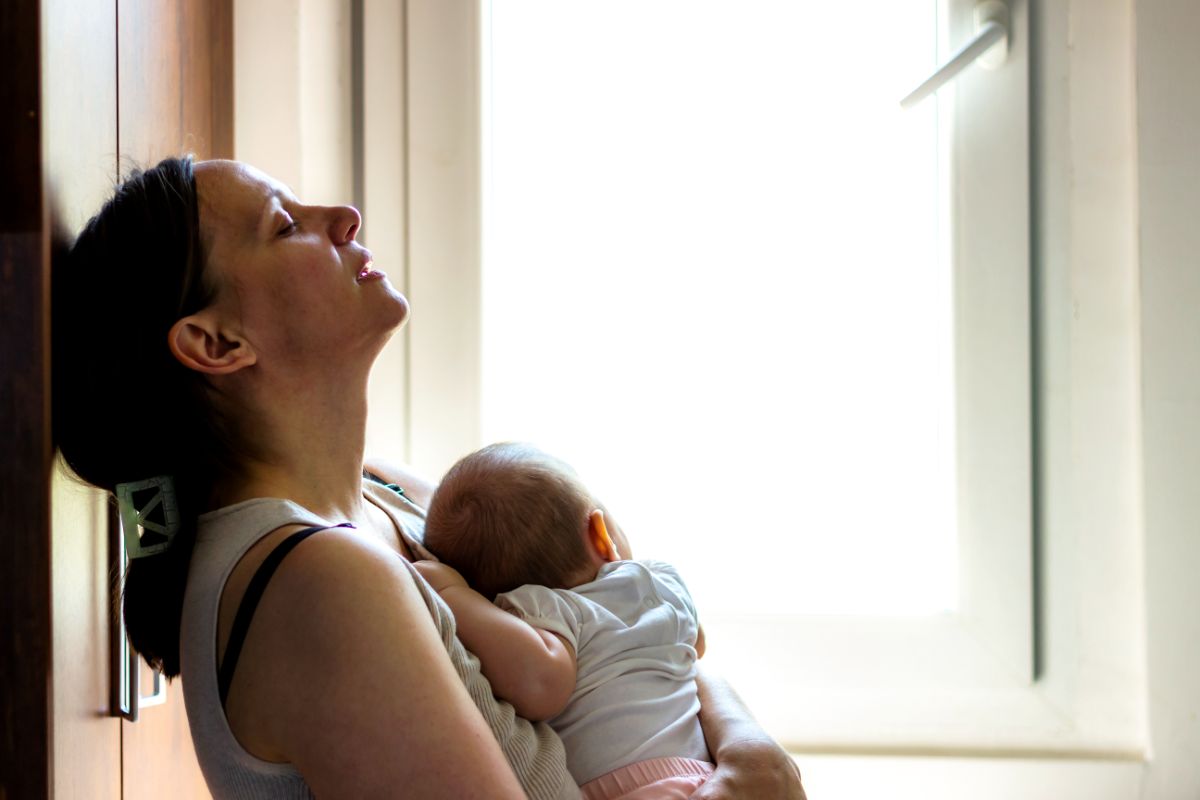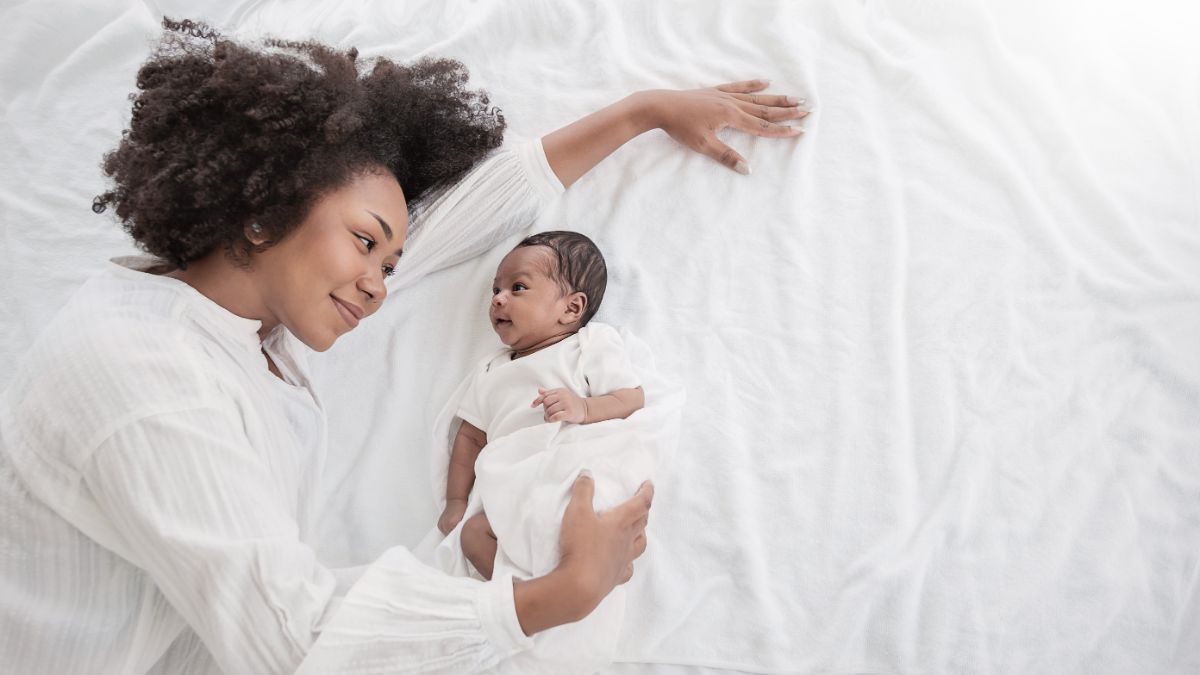Women’s Health Specialists is your trusted healthcare partner in Germantown, serving the vibrant communities of Memphis, Collierville, Bartlett, and Arlington. Sometimes our practice requires us to speak on unpleasant topics. But unfortunately, if we don’t address them, women who might otherwise get help will suffer in silence. After pregnancy, many new moms suffer from postpartum depression and other effects. If you’re dealing with postpartum depression, you deserve care and support. You aren’t just experiencing physical changes. The emotional landscape can be just as uncertain and as equally profound.
What Is Postpartum Depression?
Postpartum depression isn’t a single problem with a single definition. Some of it affects us mentally, but it’s definitely not “all in your head.”
PPD usually manifests in the following ways:
- Persistent feelings of sadness or anxiety
- Exhaustion
- A compromised ability to care for yourself or your new baby.
Symptoms of postpartum depression can include:
- Mood swings
- Difficulty bonding with your baby
- Withdrawal from family and friends
- Thoughts of harming yourself or your baby
Notwithstanding these symptoms, you must remember that PPD is not a character flaw or a weakness. It is not a moral failure that you can grit your teeth and bear up under. Any woman might have issues with PPD. At Women’s Health Specialists, we want you to know that it’s okay to ask for help. You’re not alone. You will improve with the proper support and treatment.
Other Effects Of PPD
Expecting a child and then delivering that child changes how your body works. You will notice changes in your body, how you think, and how you feel. The size and shape of your body, and/or your weight, will shift. You might also see your skin discolored or your hair falling out. Your hormones will also fluctuate. As a result, some of our patients report anxiety, increased irritability, or sensations of anxiety. Your libido might run higher or lower than usual.
Causes and Risk Factors
What causes women to go through postpartum depression? Doctors can’t point to a single cause. But, the likely culprits are the hormonal changes that women experience before, during, and after delivery. After your baby is born, you’ll be deficient in hormones like progesterone and estrogen. Why does that matter? Does it feel like the world has literally fallen out from under your feet? A lack of those two hormones can cause feelings of disorientation, alienation, and isolation.
Your body responds to your life. The opposite is also true. If your thyroid gland produces fewer of certain vital hormones, you will feel fatigued and less energetic. That’s one way your body’s internal processes affect your life. But you also have external stressors that impact your hormonal balance. You’re taking care of a new baby. You’re likewise under-rested and sleep deprived. Look to your nutrition as well. Are you eating enough food to give you energy? How about your water? Are you consuming enough?
Other factors increase your likelihood of PPD. Please don’t take that as a given; it’s not etched in stone. Contributing factors do just that – they contribute. They don’t make things inevitable. That said, ask yourself these kinds of questions. The answers will help you determine your level of risk.
- Does depression run in your family?
- Do you have a sound social support system in place?
- Were there complications with your delivery?
At Women’s Health Specialists, we believe in a holistic approach to understanding these conditions, considering all possible factors and how they interact.
Getting Diagnosed
The first step in any treatment plan involves diagnosis. Before our Women’s Health Specialists team can help you, we must first know the problem. This is where our evaluation comes in. Please don’t feel put off by that word. Our PPD evaluation will involve an intake interview. This will help us understand your thoughts and feelings about yourself and your life. We want to know what your symptoms are. You might see some questionnaires. They help us pinpoint particular issues associated with PPD.
Physical exams, like blood tests, can help us find other symptoms. A blood test will tell us what’s going on with your thyroid and, therefore, your hormones. We know it can feel uncomfortable talking about postpartum. We encourage you to remain transparent and honest about your experiences. PPD is a very real, significant issue for many women. But let us reiterate that it is not an indicator of failing or being weak. Early diagnosis is critical to managing the condition effectively and reducing its impact on your life and well-being.
Treatment Options
How do we treat PPD at Women’s Health Specialists? You’ll speak with a mental health counselor who will listen to whatever you have to say about your experience. Prescriptions can help address and regulate emotions, moods, and sleep.
But our program goes beyond symptom management. We can also help you find ways to adjust your lifestyle to better help with your recovery. Remember to move your body. Support it with foods that give you energy and help you heal. And while we know it’s difficult during this new phase of your life, do your best to get the sleep you need. As best you can, spend time with supportive family members and friends.
The ins and outs of your treatment plan will be specific to you. Recovery is possible, and postpartum, like most ailments, can be treated.
Tips for Coping and Recovery
Coping with postpartum depression and other effects after pregnancy can be challenging, but some strategies can help. Prioritize self-care:
- Ensure you get enough rest.
- Eat a balanced diet.
- Engage in regular physical activity.
Could you use a hand with childcare? Or getting caught up on household tasks? Phone a trusted family member or friend. You need connection with other people during this trying time. Supportive relationships can make a tremendous difference in your recovery. Mindfulness or relaxation techniques like box breathing, positive visualization or affirmations, or body scanning can also help. Remember that you’re a person. You deserve to be taken care of. And you’re the right one for that job.
Help For PPD At Women’s Health Specialists
If you just had a baby, we celebrate you! But if you’re struggling with PPD, remember that you deserve to be celebrated too. Get the help you need at Women’s Health Specialists in Germantown. Visit us here to schedule an appointment.



